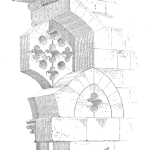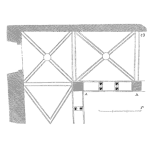
Communicating risks to public from chemical or nuclear facilities is a major challenge. We notice this over and over again with EPA community-right-to-know, nuclear power plants and lately with the LNG facilities.
[Read more…]Your Reliability Engineering Professional Development Site
Find all articles across all article series listed in reverse chronological order.
by Sanjeev Saraf Leave a Comment

Communicating risks to public from chemical or nuclear facilities is a major challenge. We notice this over and over again with EPA community-right-to-know, nuclear power plants and lately with the LNG facilities.
[Read more…]
The wellsite is 200 miles offshore, and based on experience with the application, your team is confident about reliability. But will the downhole tool survive the journey to setting depth?
[Read more…]by Robert (Bob) J. Latino Leave a Comment

Most of us have all worked at places with some degree of an ‘RCA’ effort. They likely all defined and practiced ‘RCA’ differently, but nonetheless they had something called RCA.
What made one facility better at it than another? Why was one facility’s RCA more effective than another?
[Read more…]by Mike Sondalini Leave a Comment

This article outlines key concepts that an organization needs to be aware of to bring about optimal asset health by removing risks and managing their causes. The Plant Wellness Way EAM methodology focuses on the relationship between asset health and business performance. It contains the processes and analysis tools to develop a system-of-reliability that fully supports operating asset health for the greatest ROI from each asset throughout its life cycle.Risk is the total losses suffered when any asset’s components may fail. The causes of failure are the environmental and operating stresses that affect a component’s microstructure. This means that world class reliability is the effective, complete remove of the causes of failure, also known as risks, from your operations.
[Read more…]by Greg Hutchins Leave a Comment

For some, the post-coronavirus “new normal” is a frightening concept that rattles their status quo, while others are taking this moment to seize new opportunities afforded to us by a global disruption, as COVID-19 has proven to be. The fact of the matter is that aforementioned opportunity is available to all of us, whether our “new normal” is unbearably difficult or extremely simple.
You may be asking yourself: How is that possible?
[Read more…]by Nancy Regan Leave a Comment

Does this make sense to you 👇🏻?
On my way to Boston to visit my sister yesterday, two Reliability Moments smacked me in the face.
[Read more…]
Automotive Electronic parts are qualified before usage in serial production. When product quality and reliability are poor, then assembly problems, high warranty costs, poor service, and recalls occur. The OEM’s and suppliers followed different qualification plans. Ford, GM, and Chrysler and large parts suppliers started the Automotive Electronics Council (AEC) in the 1990’s, with the mission of defining a suite of common qualification tests.
The first qualification standard was Q100, which defined stress tests for electronic components containing integrated circuits. These components are in every electronic control module, some sensors, entertainment systems, safety systems, and, in the future, autonomous driving systems.
by Carl S. Carlson Leave a Comment

“Creativity is an ability to respond adaptively to the needs for new approaches and new products.” Frank Barron
Creativity is an essential ingredient to achieving excellence in FMEAs. Excerpts from the book Effective FMEAs will be used throughout the article.
by George Williams Leave a Comment

George Williams, CEO of ReliabilityX, explains the difference between reactive maintenance vs proactive maintenance.
Read moreby Alex Williams Leave a Comment

Reporting is one of the most important functionalities of computerized maintenance management software. Organizations spend a great deal of money to obtain data that they can use to make informed business decisions. The ultimate goal of implementing software for maintenance and facilities management is to achieve returns in the form of increased productivity and savings. A CMMS reporting module aids maintenance managers in achieving this goal by enabling them to receive data from maintenance technicians, analyze the data, and make continuous improvements. Reporting modules also allow users to produce graphs and charts of key performance indicators (KPIs).
[Read more…]by Sanjeev Saraf Leave a Comment

We appear to be in a global recession – companies all over are struggling to deal with impact of economic slowdown. In an attempt to maintain profits, companies are drastically reducing their spending and also trimming down their workforce. It is anticipated that one-fourth of the employers in the US will undergo workforce reduction in 2009. As a result of pessimism and uncertainty about future, there is an increased level of anxiety amongst the employees. There are a few issues that a chemical manufacturing firm must address to ensure safe operation during the downturn:
[Read more…]
Reliability assessments require all of the previous six facilitation good practices in the “Five Ways to More Effectively Facilitate…” series. This article discusses five ways to effectively facilitate reliability assessments by conducting pre-session exchanges, asking powerful questions, using exercises that engage, anticipating disruption, and controlling the tempo.
The foundations of systems thinking apply to facilitating reliability assessments because the analysis requires a group to establish the nature of separate and inter-related components. Facilitation is defined as a structured session(s) in which the meeting leader (the facilitator) guides the participants through a series of predefined steps to arrive at a result that is created, understood, and accepted by all participants.” For reliability assessments, predefined steps, definitions, and prioritization of implementation actions are three key aspects.
A reliability assessment is a decision-making tool that assists in making trade-off decisions related to system performance and financial investments. The major benefit is a comprehensive understanding of the interrelated physical parts, human aspects, and interfaces. In the least case, reliability assessments will indicate a system’s single points of failure and generate mitigation actions that make success more probable. In the greatest case, a reliability assessment will quantify the probabilities of success and failure.
[Read more…]by Robert (Bob) J. Latino Leave a Comment

If managers knew what the overall power of a well supported Root Cause Analysis (RCA) effort meant for their bottom-line, they would be breaking down doors to implement the process.
Unfortunately, this is often not the case, so this paper is an attempt to educate such individuals about the characteristics of an effective RCA methodology. The paper focuses on the three aspects of RCA we believe leadership teams need to understand the most. [Read more…]
by Michael Pfeifer, Ph.D., P.E. Leave a Comment

Failures during product testing and use are a fact of life. Even with the most robust design we can develop an overly aggressive reliability test or find users that dish out punishing treatment, causing product failures. And for designs that are less robust, standard reliability tests and normal users will cause failures, occasionally or frequently depending on the design robustness.
When a product fails, its related to failure of individual components and/or joints between components. When a component or joint fails, it’s because their materials degraded to the point that the component or joint could no longer perform as required.
[Read more…]by Andrew Kelleher Leave a Comment

We live in turbulent times. Transformational times. But what are the possible implications for the production industries and for process plant reliability engineering?
In 2020, Deloitte (Deloitte Touche Tohmatsu Limited) attempted to address the first part of this question by examining four (4) possible scenarios for the future of Europe’s chemical process industry. The results of their study (refer Figure 1) are relevant for many industries and suggest that “proactive transformation” will be required for a profitable and sustainable future (i.e., Scenario 1).
[Read more…]